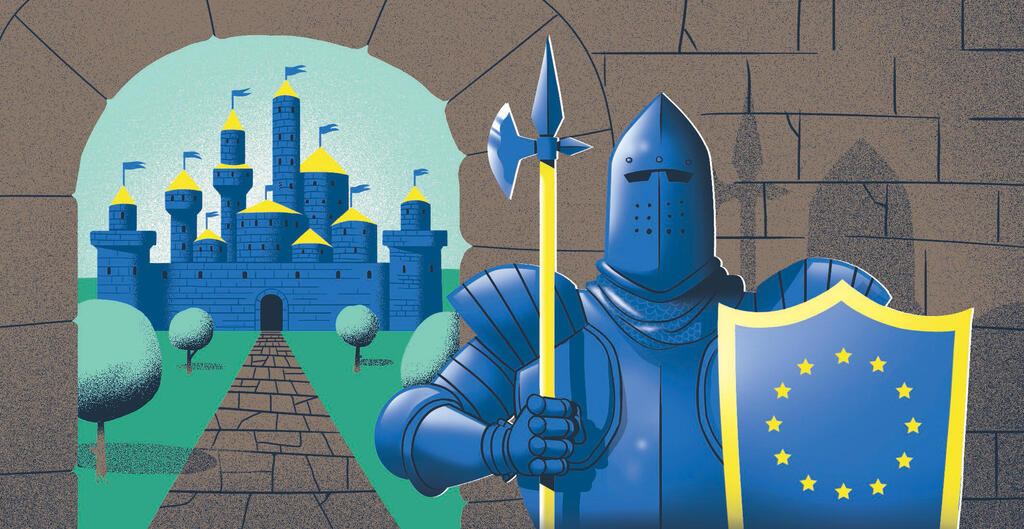
Analysis
How Europe is successfully battling tech giants on privacy
European regulators are fighting against global platforms such as Meta, Google, Amazon and TikTok, in order to protect the privacy of citizens
Meta, the parent company of Facebook, WhatsApp, and Instagram, launched its newest social network Threads earlier this month. Much has been said about the emergence of this new rival to Twitter, regarding user experience, target audience, and the heated rivalry between founders Mark Zuckerberg and Elon Musk. Even more has been said about the speed at which 100 million users signed up for the platform, surpassing that of ChatGPT and TikTok, as if it were a relevant metric, without considering that comparing the adoption of different internet platforms like Facebook, TikTok, and ChatGPT doesn't make sense at all.
While the discourse surrounding the subject is global, the truth is far from that. Threads was not launched in the 27 European Union countries, which together have half a billion residents.
Meta acted deliberately, putting itself on a clear collision course with the European Union, hoping that they would back down first. Officially, Meta explained that it is not launching Threads right now due to "regulatory uncertainty." This is a misleading statement because certainty is not lacking; they simply don't like it. Meta is not launching the application because of the way it was built, including extensive data sharing between Threads and its other applications, and the amount and quality of personal data it collects, which make it subject to the European Union's privacy (GDPR) and digital competition (DMA) laws.
These regulations require technology companies to obtain clear consent from users regarding the collection of their data and impose limitations on companies that share and merge data between platforms. One of the limitations forced Facebook, in May 2022, to disconnect its virtual reality goggles from logging in through Facebook itself.
An app that poses a privacy threat
Meta is not the first company to withhold services in recent months in the European Union. Google announced that it "must delay" the rollout of Bard, a competitor to ChatGPT, due to the potential violation of European privacy rules. Claude.AI, the chatbot from the artificial intelligence company Anthropic, also faced the same issue and was not launched. Meanwhile, Sam Altman, CEO of OpenAI, warned that the company might retreat from the EU due to similar concerns, while the Italian regulator blocked the usage of the product. These companies all share similar messages to the European public: they would love to launch their products, but unfortunately, the digital regulatory power in Europe poses significant risks. Or in other words, complain to your politicians about it.
The tactic of withholding services, without adhering to the rules, aims to convey to the European Union that its strategy to manage, regulate, and protect citizens from the challenges and dangers of the digital era comes at a cost. However, the Union has not yet given in. "The fact that Threads is still not available to European Union citizens shows that the regulation of the European Union works... I hope that Meta will ensure that all the rules are complied with before launching to European Union citizens," said the Danish legislator Christel Schaldemose, who led the DMA legislation. While tech companies play their "game of tactics," one central question arises: who loses more? The European citizens who are denied access or the rest that don't have regulations suitable for the digital sphere?
Tech giants exploiting loopholes
The new app Threads is a "privacy nightmare," collecting a wide range of data, including health and financial information, browsing history, location, purchases, contacts, search history, and more. The chatbots, Bard, Claude, and ChatGPT, not only trim personal data and private information without user consent, but also use users without any authority to access copyrighted content in order to develop products and generate profits for themselves.
On the other hand, there are those who argue that these regulations are irrelevant in the current era, and efforts to slow down or limit innovation in the name of protecting rights such as privacy or intellectual property are not worthwhile. As evidence, the European Union is far from being at the forefront in the field of artificial intelligence. The tension is clear and unresolved - what should be given regulatory priority - competition or privacy? The corporation or the individual?
For a long time, since the 1990s, one work assumption was followed: avoiding regulation as much as possible so that technology companies could move quickly and innovate. Within this framework, several giants emerged without much attention to the way they amassed their power. For example, Google evolved from a search engine giant to a developer of the leading smartphone interface (Android), a dominant cloud service provider, the owner of the world's largest video platform (YouTube), and a thriving consumer space (ads, shopping, flights, and hotels). Facebook invested far less in innovation and quickly acquired or copied every small competitor, becoming the world's largest social networking conglomerate, owning Instagram, Facebook, Messenger, WhatsApp, and now Threads. Amazon transformed from a platform for sellers to a seller itself and then a manufacturer, to a global logistics manager, a dominant cloud service provider, and a film production company.
Between these companies, they have been shielded from any legal liability for the content published on or sold through them, free to acquire and copy any competition, sometimes just to destroy the service, sell data to the highest bidder, and promote their services in a distorted manner on dominant market platforms.
Companies losing to regulators
Exploiting this position led to the perception that search engines, social networks, and cloud service providers act as "gatekeepers" and control access to digital services, thus requiring special responsibility to be placed upon them. In Europe, as mentioned, they led the way with regulations for privacy protection, digital markets law, and the world's only legislation on artificial intelligence. All of these attempted to set the standard for countries worldwide.
This proactive approach led technology companies to collide head-on with regulators. In the past two years, both Google and Facebook threatened countries like Australia, France, Canada, Germany, Spain, and the UK, stating that they would shut down their products if they continue trying to impose restrictions. However, so far, all technology companies have lost. Altman rushed to explain that he won't leave the Union so quickly, Google launched Bard with a delay according to the rules, and it can be expected that Meta will also launch Threads.
The conclusion is evident, and there is no room for error: the world needs more chatbots or social networks much less than these chatbots or social networks need the world, its data, and the profits it can generate from them. Without the world, they have no purpose. Battling these companies is beneficial for citizens and create a healthier equation: more rights for individuals and more limitations for companies.














